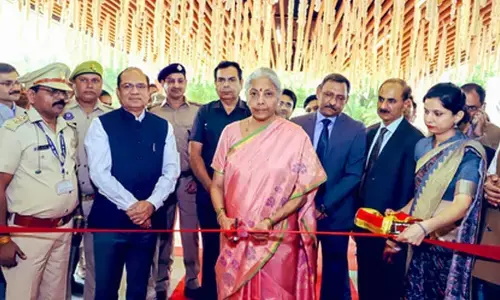How to choose right executive development programme

Selecting the right executive development program is a strategic decision that can significantly impact your organization’s success. By defining your objectives, assessing needs, evaluating program content and faculty, and considering factors like flexibility, outcomes, and reputation, you can make an informed choice that aligns with your organization’s goals.
Investing in the growth and development of executives is paramount to sustaining a competitive edge. Executive development programs offer a powerful way to enhance leadership skills, drive innovation, and foster long-term organizational success.
However, with multitudes of programmes available, choosing the right one for your organization can be daunting. Here are some key considerations to help you make an informed decision when selecting an executive development program tailored to your organization’s unique needs.
1. Define your objectives
Begin by clearly outlining the goals you aim to achieve through the executive development program. Are you seeking to cultivate specific leadership competencies, adapt to industry changes, or enhance overall organizational performance? Defining your objectives will guide you in selecting a program that aligns with your strategic vision.
2. Assess individual and organizational needs
Identify the skills and competencies your executives require to meet current and future challenges. Consider the aspirations and career paths of your executives as well as the unique demands of your industry. Tailor the program to address these specific needs for maximum impact.
3. Evaluate programme content and methodology
Thoroughly review the curriculum and content of the program. Does it cover a comprehensive range of topics? Look for programs that offer a blend of theoretical knowledge and practical application. Case studies, simulations, and real-world projects can enhance the learning experience and make the program relevant to your executives’ day-to-day responsibilities.
4. Faculty expertise
The quality of the faculty delivering the program is critical. Research their backgrounds, expertise, and industry experience. Faculty members with a blend of academic knowledge and practical industry insights can provide a well-rounded learning experience.
5. Flexibility and customization
Customize programs to suit your organization’s unique culture and challenges. Adapt programs to your executives’ schedules and learning preferences for better engagement and outcomes.
6. Measurable outcomes
Implement programs that emphasize measurable outcomes. The ability to quantify the program’s impact through metrics like increased revenue, improved employee satisfaction, or enhanced leadership effectiveness will help justify the investment.
7. Alumni success stories
Research the success stories of past program participants. Insights into their professional growth and achievements will provide valuable insights into the program’s effectiveness.
8. Reputation and accreditation
A program’s reputation and accreditation can speak volumes about its quality. Look for programs offered by reputable institutions or those with affiliations with recognized industry bodies.
9. Networking opportunities
Effective executive development goes beyond the classroom. Programs that facilitate networking among participants from diverse industries can lead to valuable connections and collaborations.
10. Continuous learning culture
Choose a program that fosters a culture of lifelong learning. Encourage executives to continue their learning journey beyond the formal curriculum to sustain growth and allow for long-term development.
11. Return on Investment (ROI)
Evaluate the potential return on investment. While executive development programs require an initial investment, the long-term benefits should far outweigh the costs. Look for programs that offer mechanisms to measure ROI.
12. Feedback and reviews
Seek feedback from organizations or professionals who have previously participated in the program. Their insights can offer valuable perspectives on the program’s strengths and areas for improvement.
Selecting the right executive development program is a strategic decision that can significantly impact your organization’s success. By defining your objectives, assessing needs, evaluating program content and faculty, and considering factors like flexibility, outcomes, and reputation, you can make an informed choice that aligns with your organization’s goals. Remember that a well-chosen program develops your executives’ skills and nurtures a culture of growth and innovation that can propel your organization to new heights.
(The author is CEO – ROI Institute India)















